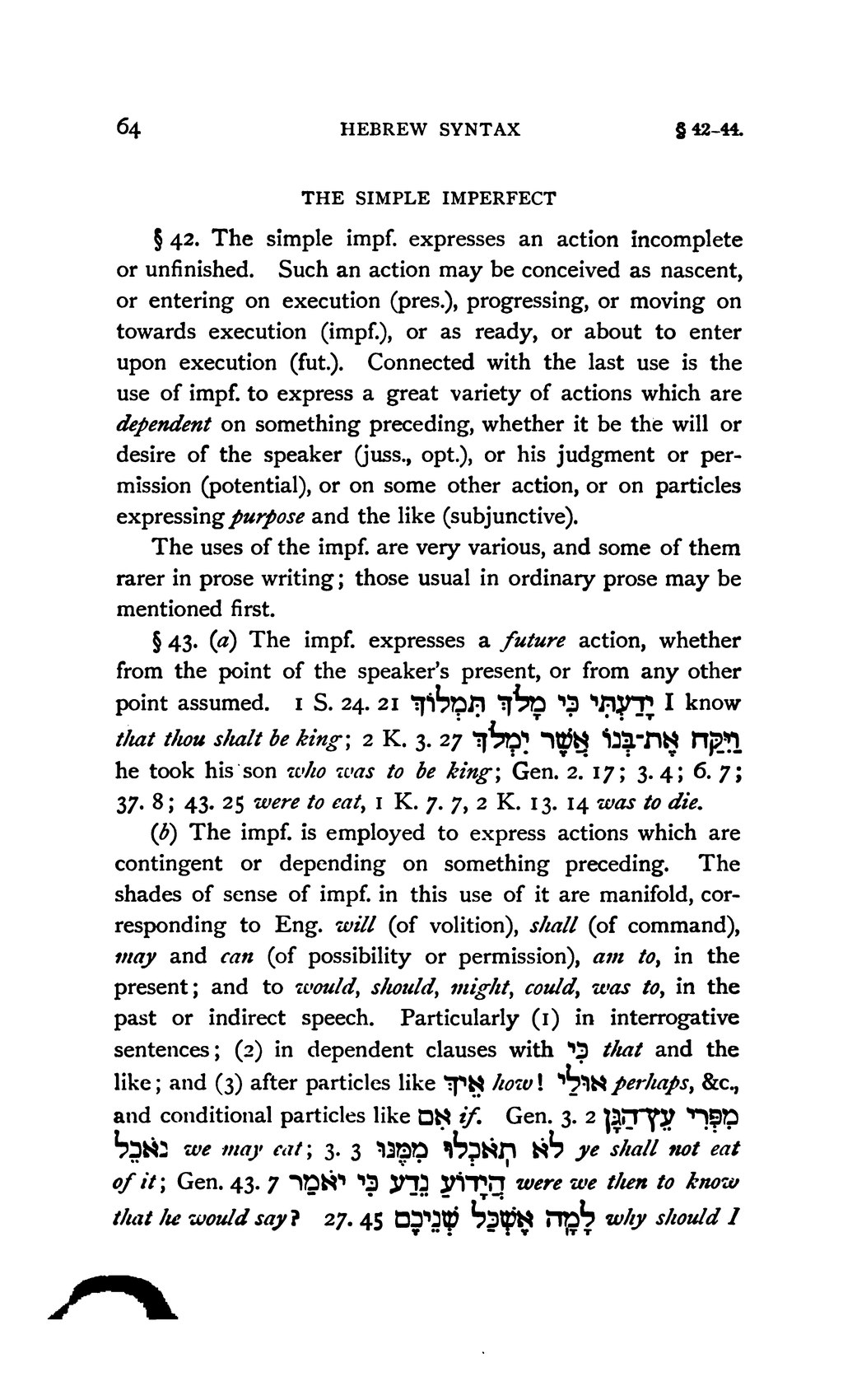THE SIMPLE IMPERFECT
§ 42. The simple impf. expresses an action incomplete or unfinished. Such an action may be conceived as nascent, or entering on execution (pres.), progressing, or moving on towards execution (impf.), or as ready, or about to enter upon execution (fut.). Connected with the last use is the use of impf. to express a great variety of actions which are dependent on something preceding, whether it be the will or desire of the speaker (juss., opt.), or his judgment or permission (potential), or on some other action, or on particles expressing purpose and the like (subjunctive).
The uses of the impf. are very various, and some of them rarer in prose writing; those usual in ordinary prose may be mentioned first.
§ 43. (a) The impf. expresses a future action, whether from the point of the speaker’s present, or from any other point assumed. 1 S. 24:21 יָדַעְתִּי כִּי מָלֹךְ תִּמְלוֹךְ I know that thou shalt be king; 2 K. 3:27 וַיִּקַּח אֶת־בְּנוֹ אֲשֶׁר יִמְלֹךְ he took his son who was to be king; Gen. 2:17; 3:4; 6:7; 37:8; 43:25 were to eat, 1 K. 7:7, 2 K. 13:14 was to die.
(b) The impf. is employed to express actions which are contingent or depending on something preceding. The shades of sense of impf. in this use of it are manifold, corresponding to Eng. will (of volition), shall (of command), may and can (of possibility or permission), am to, in the present; and to would, should, might, could, was to, in the past or indirect speech. Particularly (1) in interrogative sentences; (2) in dependent clauses with כִּי that and the like; and (3) after particles like אֵיךְ how! אוּלַי perhaps, &c., and conditional particles like אם if. Gen. 3:2 מִפְּרִי עֵץ־הַגָּן נֹאכֵל we may eat; 3:3 לֹא תֹֽאכְלוּ מִמֵּנּוּ ye shall not eat of it; Gen. 43:7 הֲיָדוֹעַ נֵדַע כִּי יֹאמַר were we then to know that he would say? 27:45 לָמָֽה אֶשְׁכַּל שְׁנֵיכֶם why should I
